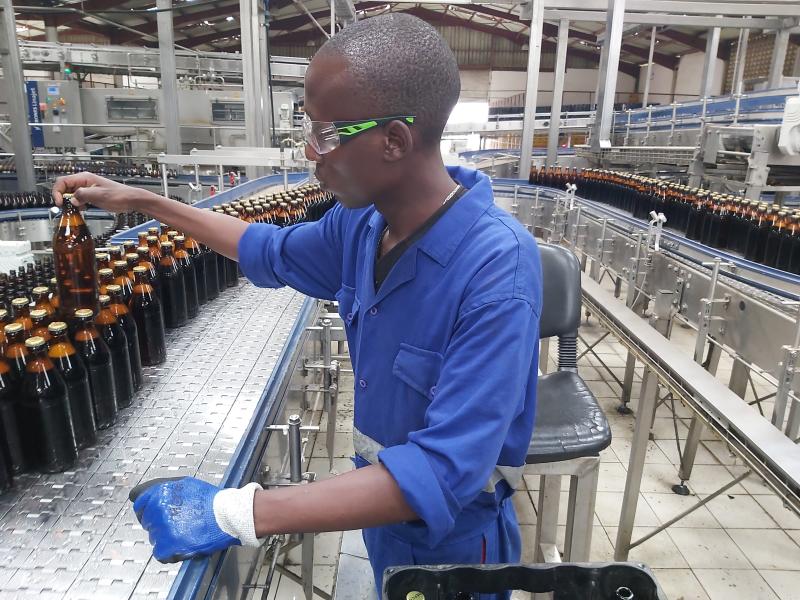A worker at Keroche Breweries inspects beer production. [Antony Gitonga, Standard]
×
The Standard e-Paper
Join Thousands Daily

Companies locked in tax disputes with Kenya Revenue Authority (KRA) now face liquidity strain on proposal that such firms deposit half of disputed tax in government coffers.
Treasury Cabinet Secretary Ukur Yatani says tax disputes are taking too long to conclude, especially at the Tax Appeals Tribunal, locking potential taxes from the KRA.